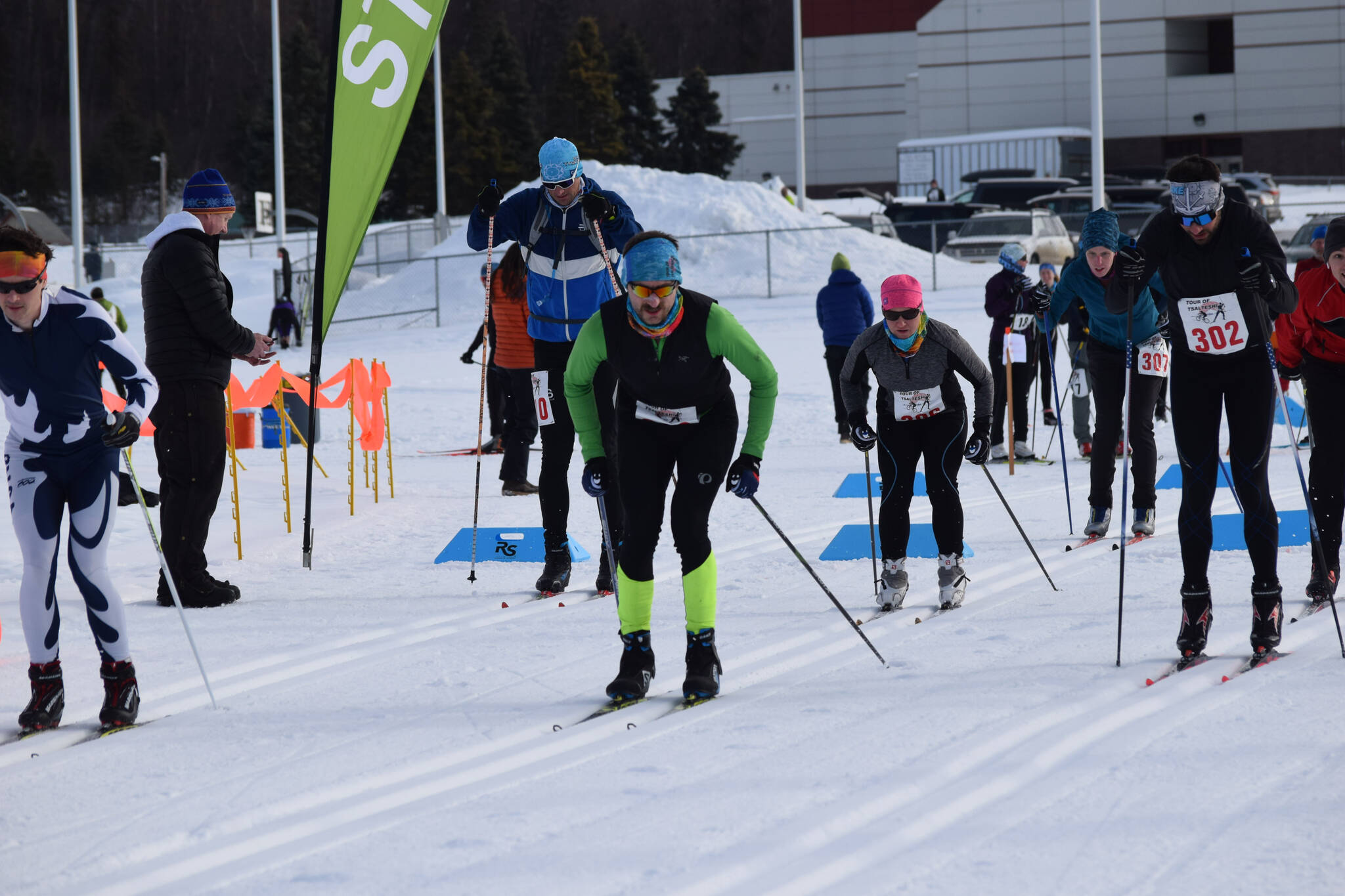At the beginning of February, I began reading “If Beale Street Could Talk” by James Baldwin.
The first 100 pages were slow but worthwhile as Baldwin developed the characters. By the second 100 pages, the story had really started to cook.
Baldwin was masterfully jumping from time period to time period, revealing why Tish and Fonny were in love, why Fonny was in prison, and what the families of the lovers were doing to try and get Fonny out.
Then my editor went on vacation for three weeks, cashing in an overflow of personal time that had built up due to the pandemic.
My rhythm was broken and “Beale Street” sat unread.
Two weeks into my editor’s vacation, I waxed up my skis for the 20-kilometer freestyle at the fifth annual Tour of Tsalteshi.
Songs on the drive to the race are very important. On this day, I had chosen “Over the Hills and Far Away” off Led Zeppelin’s live album “The Song Remains the Same.”
“When you listen to it, you can hear what each individual person is putting into that, and how two will be bonding with two, and two here, and three, and all four, and it’s just this weave,” Zeppelin guitarist Jimmy Page said in a 2012 Charlie Rose interview of the band’s success.
“Over the Hills and Far Away” is a prime example. The first 52 seconds are devoted to a guitar intro by Page — sad, wistful, but bounding toward optimistic and uplifting.
The next 37 seconds are just Page and vocalist Robert Plant, with the duo starting flirtatious and gradually building to the crashing entrance of the backbone of the band — bassist John Paul Jones and drummer John Bonham.
And then … nothing.
I looked down at my phone. My editor was calling. She was headed to Chicago and needed a photo of the vaccine card in her work desk to get into the Art Institute of Chicago.
Rhythm, again, broken.
I managed to shake loose of the call in time to make it to the start line. Conditions were fast and icy. I whirred through the first 10K as fast as I’d ever done it.
Locked in with a nice group of skiers with a hilly final 10K to come, I thought to myself, “This is going to be a fun race. For the first time since the pandemic started, I’m finally in a fun race again.”
And then … a group of about 15 lycra-clad skiers in front of me were scattering into the woods and ducking behind trees as a pissed off moose made a bluff charge on the trail.
After four or five minutes of trying to get the moose to yield, a group decision was made to use a bypass and leave about 600 meters of the course to the moose. By the time the race got going again, I found myself skiing in a pack of skiers who had caught up during the standoff.
A sustaining rhythm had once again been broken.
I did finish the race. I played the song on the drive home. I turned the final page on Baldwin’s classic a few days after my editor returned.
Alan Boraas, the late professor of anthropology at Kenai Peninsula College, once wrote: “In the card game of life, nature is the dealer. We don’t get to deal, we only get to react.”
That being said, I’m ready for life to get back into a more regular rhythm.


